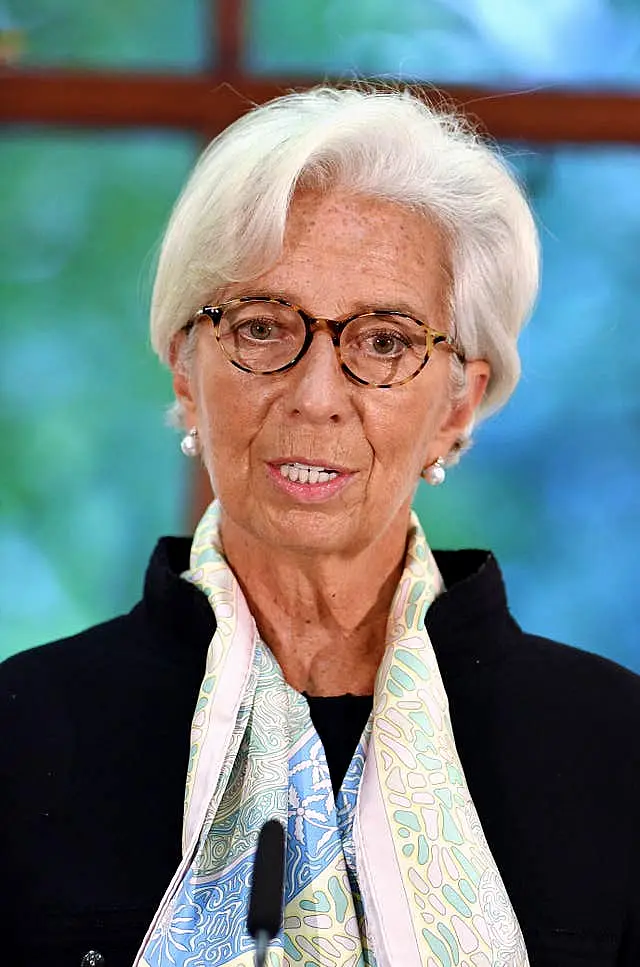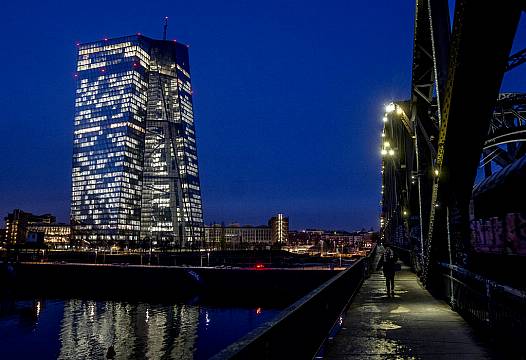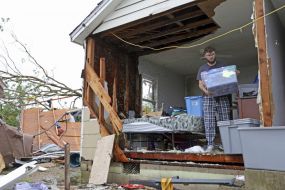The European Central Bank pressed ahead with another interest rate rise on Thursday, aiming to crush inflation.
The move came after the US Federal Reserve took a break from its own string of increases.
The ECB’s governing council, which decides interest rate policy for the 20 countries that use the euro currency, increased its benchmark rate by a quarter of a percentage point, to 3.5%.
“Inflation has been coming down but is projected to remain too high for too long,” the bank said in a statement.
It was the eighth straight increase since July 2022, an unprecedentedly swift campaign to tighten the flow of credit to the economy as the bank seeks to return inflation to its target of 2% from 6.1%.
The ECB’s own projections acknowledge that controlling inflation will take months longer even as it has fallen from a double-digit peak late last year.

The decision was widely expected, and many analysts think one more quarter of a point hike is in the cards for the bank’s next meeting on July 27.
ECB president Christine Lagarde’s remarks at a news conference on Thursday will be scrutinised for clues about when rate increases might finally top out.
Central banks around the world are trying to wrestle down price spikes that have been squeezing households and businesses with higher bills for basics such as food and rent but some are starting to diverge in their decisions to avoid plunging their economies into further trouble.
The US Federal Reserve suspended its series of rate hikes on Wednesday as it assesses the impact of higher rates on economic growth and jobs. It takes months for rate hikes to work their way through to the economy, and a pause can be a chance to see if the medicine is working.
Nonetheless, Fed projections indicate two more rate hikes are possible this year. Central banks in Australia and Canada resumed rate increases last week after a pause.
In Europe the economy contracted slightly in the last months of 2022 and the first three months of this year. Two straight quarters of falling output is one definition of recession.
The Euro Area Business Cycle Dating Committee, which uses employment as well as economic growth data in determining when a recession has occurred, found no recession at its last assessment March 27 and will revisit the question in November.
Consumer prices started rising as the global economy bounced back from the Covid-19 pandemic and created supply chain bottlenecks.
Oil and natural gas prices also spiked due to Russia’s threats against Ukraine and after its February 2022 invasion. That also sent food and fertiliser prices soaring amid disruption to supplies from the warring countries, both major agricultural exporters.
Those pressures are starting to ease, but the initial burst of inflation is being reflected in higher wage demands and prices for services, even as energy prices have fallen in Europe in recent months.
Home prices in Europe started to fall in the last months of 2022, the first dip since 2015, one sign that the ECB’s policies are feeding through to the economy as mortgage costs deter homebuyers.







